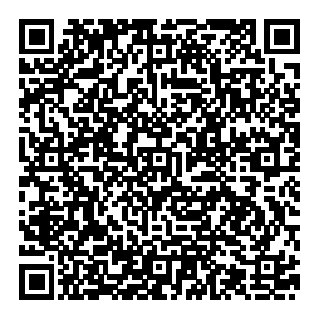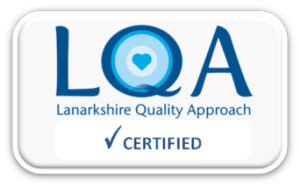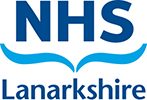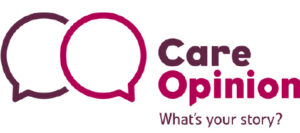Top tips for healthy eating after having a baby
Information for patients
NHS Lanarkshire Maternity Department
PIL.POSNAT.20_18758.L
Having a new baby can be hard work and while our priority is to look after our little bundle, it is important to look after you too and your needs. Having a nutritious, balanced diet is important for energy and feeling well. Here are some top tips to help:
- Eat at least five portions of fruit and vegetables a day – a portion is around 80g. Try to choose a variety; including fresh, frozen and tinned (in its own juice). Fresh fruit juice should only be consumed once per day and drinking it at breakfast time will increase iron absorption. All fruits and vegetables are a natural source of vitamins and minerals and are low in calories. Remember, if you are planning another pregnancy, a 400mg folic acid supplement is recommended daily. Ask your Health Visitor for more info.
- Eat regularly and try not to miss meals, especially breakfast – your body needs regular energy to cope with looking after a new baby and allow your body to recover after childbirth and produce breast milk if you are breastfeeding. Regular eating can also help with weight loss; long gaps without eating can lead to weight gain as your body requires energy to burn calories. Try to have breakfast, lunch and dinner. If you miss a meal, try to have lots of smaller healthy snacks (see Tip No5) to make up for the energy you have lost.
- Base meals on starchy carbohydrate such as bread, pasta, rice and potatoes; choosing wholegrain options as much as possible. These provide slow releasing energy and are low in fat, but are a good source of fibre, calcium, iron and B vitamins to keep you feeling well. Some breakfast cereals are fortified with nutrients and can be a quick easy alternative first thing in the morning; choose high fibre, unsweetened options.
- Try to batch cook or make more where possible and freeze meals – time can be limited after having a baby, so having some meals in the freezer can save time and is a quick, easy swap instead of a takeaway or high calorie snack. If friends or family members offer help, ask them to prepare healthy meals that can be frozen.
- Have healthy low fat, low sugar snacks – sleep deprivation and lack of time can lead to unhealthy snacking so having a variety available both at home, and in your pram bag for out and about is useful. Chopped fruit or raw vegetables, yoghurts, healthy cereal bars, breadsticks, oatcakes and unsalted nuts are ideal. If friends visit, ask them to bring healthy snacks as above instead of cakes and biscuits. You could try making your own. Parentclub has lots of quick, easy ideas (www.parentclub.scot)
- Drink plenty of fluids – try to drink 6-8 glasses of non-alcoholic drinks every day to stop becoming dehydrated. If you are breastfeeding you may be thirstier and drink more. Drinking plenty can also help with weight loss as people often snack when they are thirsty. Water is best, but low fat milk, limited tea and coffee (decaffeinated is better), and sugar free diluting juice are also included. Carrying a water bottle about with you can help as a reminder.
- Stay active – keeping active is not only good for achieving a healthy weight; it can also help with energy levels, mood and wellbeing. Try to be physically active for 150 minutes a week. You could try breaking this into a half hour walk with your baby most days, or attend a postnatal exercise class. It is advisable to wait until six weeks after having your baby before starting strenuous exercise. Ask your Health Visitor what is currently available in your area.
- Reduce total fat intake – keep your intake of pies, pastries, cream, chocolate, cakes, crisps, fried foods and takeaways to a minimum. They provide little nutrition and the fat content can increase overall calorie intake. Try lower fat, healthier alternatives and choose spreads and oils that are high in polyunsaturates and monunsaturates and use them sparingly. Omega 3 fatty acids are a source of good fats and can be included by having a portion of oily fish, flax seeds in cereal or yoghurt or some eggs contain omega 3 too.
- Keep sugar to a minimum – too much sugar can lead to weight gain and tooth decay and although it can feel like an energy boost, this will be short-lived. Keep your intake of sweets, cakes, sugar coated cereals, puddings, jams and sugary drinks as occasional treats only and look for healthier alternatives.
- Check nutrition labels and food packaging – look for products that have less than 5g sugar and 3g fat per 100g. A traffic light system is available on the front of packaging; however, this often details per portion (rather than per 100g) so it’s important to be mindful of what size the portion is.
* The recommended amount of vitamin D cannot be met through diet alone; therefore, if you are breastfeeding then you should take Healthy Start vitamins or a 10mcg vitamin D supplement. Ask your Health Visitor for your free supply.
This leaflet should only be used as part of a supportive discussion with a healthcare professional.

Pub. date: November 2020
Review date: November 2022
Issue No: 03
Reference: PIL.POSNAT.20_18758.L
If you need this information in another language or format, please e-mail:




